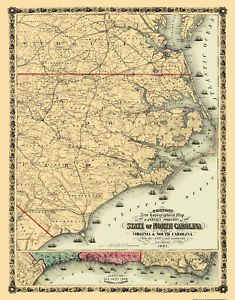 The war is not the only matter that concerns Southern Baptists. Doctrine is commonly discussed in sermons and newspapers.
The war is not the only matter that concerns Southern Baptists. Doctrine is commonly discussed in sermons and newspapers.
Perhaps foremost of doctrinal issues among war-time Baptists of the South is Calvinism, a system of theological thought inherited from the Protestant Reformer John Calvin, who in turn borrowed from the ancient Church father, Augustine. Many Baptists hold to the tenets of Calvinism, which equate salvation and damnation of individuals to God alone, totally independent of what the individual believes or does. Southern Baptists’ only seminary, the Southern Baptist Theological Seminary, is a product of, and led by men of, Presbyterian (the denomination most representative of Calvinistic thought) upbringing.
Unbeknownst to many at this time, Calvinism has already crested in Southern Baptist life in the face of growing and widespread focus, fostered by 19th century revivalism, on the need for individuals to make a personal decision for or against Christ. Ascendant Arminianism, the theological belief that Christ died for all persons (as opposed to the Calvinistic belief that Christ died only for the persons God aforehand chose to save) and that salvation requires a human decision, is responsible for the receding of Calvinism.
For now, however, Calvinism remains popular among Baptists, and Baptist newspapers often focus upon the subject. Today’s North Carolina Biblical Recorder offers the following brief commentary under the title of “Sovereignty of Grace” (Calvinists believe in “total depravity,” the belief in the utter helplessness of individuals to come to God, contrasted with the complete sovereignty of God over the affairs of persons):
The Rev. Dr. Larson in a discourse on the sovereignty of grace in the conversion of sinners, made the following declaration: ‘For my part I am firmly persuaded that all my hope must rest upon the riches and sovereignty of the mercy of God in Christ Jesus. I am persuaded that millions already in hell were far less criminal when they left the world than I have been. I am sensible that I can never make myself a fitter subject of mercy than I am at this moment; and that therefore I must follow to the pit those miserable wretches that are groaning under the wrath of God, unless I am plucked as a brand out of the burning. A doctrine so necessary to my hope and peace as the sovereignty of divine mercy I hope never to renounce.
For all the reverend’s praise of Calvinism, he, like other Calvinists, is ultimately uncertain if he is one of the “elect,” that is, one of the fortunate ones chosen by God for salvation. This lack of certainty in the Calvinistic construct already makes it unappealing to an increasing number of Baptists, perhaps in turn attributing to the seemingly constant stream of theologically Calvinist exhortations from some Baptist pulpits and newspapers.
In addition, while during the war years there is much Calvinistic-themed discourse regarding God’s “providential” hand upon the Confederate States of America, and much proclaimed certainty of the southern nation being favored by God, the ultimate (and truly surprising, in the eyes of many Southern Baptists) defeat of the South further erodes the doctrines of Calvinism in Baptist life in the South.
Source: Biblical Recorder, November 20, 1861 (link)


